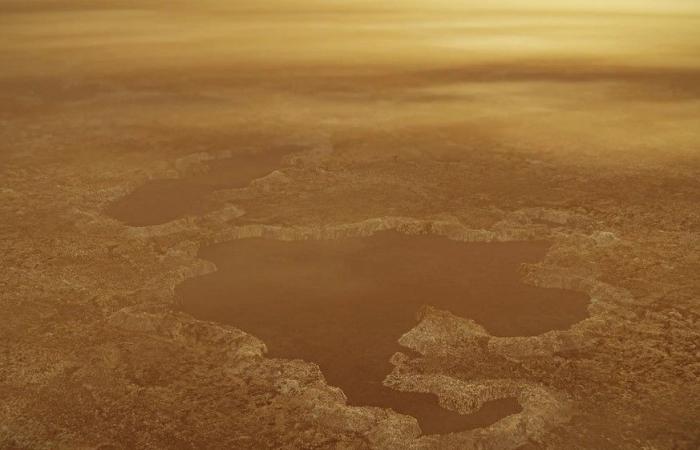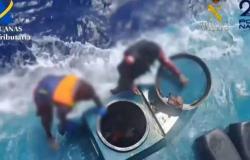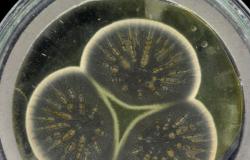Geologists at MIT have discovered that wave activity on Saturn’s largest moon, Titan, may be strong enough to erode the shorelines of its lakes and seas.
Until now, scientists had found indirect and contradictory signals of wave activity, based on remote images of Titan’s surface.
Titan, Saturn’s largest moon, is the only planetary body in the solar system besides our own that is currently home to active rivers, lakes, and seas. Titan’s otherworldly river systems are believed to be filled with liquid methane and ethane that flow into vast lakes and seas, some as large as Earth’s Great Lakes.
The existence of Titan’s large seas and smaller lakes was confirmed in 2007, with images taken by NASA’s Cassini spacecraft. Since then, scientists have studied those and other images for clues about the moon’s mysterious liquid environment.
COASTAL EROSION
For the new study, the MIT team took a different approach to investigating the presence of waves on Titan, first modeling the ways a lake can erode on Earth. They then applied their modeling to Titan’s seas to determine what form of erosion might have produced the coastlines in the Cassini images. They found that waves were the most likely explanation.
The researchers emphasize that their results are not definitive; Confirming that there are waves on Titan will require direct observations of wave activity on the moon’s surface.
“We can say, based on our results, that if the coastlines of Titan’s seas have eroded, waves are the most likely culprit,” Taylor Perron, professor of Earth, Atmospheric and Planetary Sciences, says in a statement. at MIT. “If we could stand on the edge of one of Titan’s seas, we could see waves of liquid methane and ethane hitting the shore and crashing onto shorelines during storms. And they would be able to erode the material that the shoreline is made of.”






